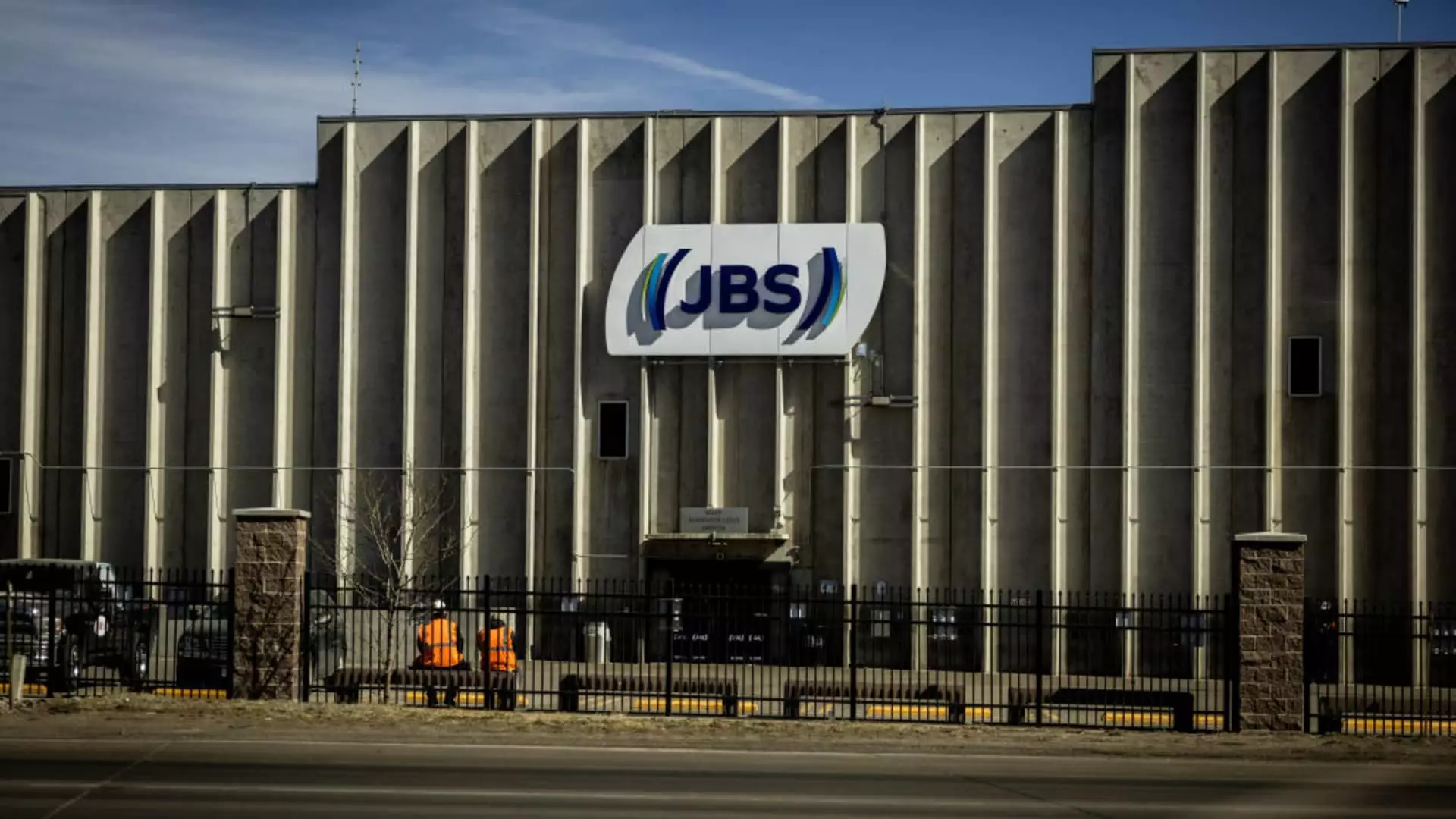When Brazilian meat giant JBS announced its U.S. public market debut, investors held their breath, ready to embrace what they perceived as a monumental financial opportunity. On that fateful Friday, the shares opened at $13.65 each, bumping the company’s market cap up to an eye-watering $30 billion, eclipsing its American competitor, Tyson Foods, which sat at roughly $19.82 billion. While this type of meteoric rise sounds like a success story one would celebrate, there’s a shadow lurking within this financial debut that demands scrutiny.
After over a decade of attempts to break into the U.S. market, JBS’s delayed entrance, attributable to unresolved operational procedures, serves as a reminder that financial markets are fraught with complications and risks. This transition from Sao Paolo to the New York Stock Exchange, while seemingly a straightforward progression, is laden with historical baggage that should not be ignored.
A Corporate Legacy Marred by Scandal
One cannot discuss JBS without acknowledging its tumultuous past. Founded more than seventy years ago, it has dedicated itself to becoming the world’s largest meatpacking company. However, this achievement comes tarnished by scandals that have propelled the company from success to controversy.
In 2017, JBS found itself at the center of a corruption scandal that implicated its leadership in a bribery scheme costing them a staggering $3.2 billion in fines. The company’s former chair, Joesley Batista, along with his brother, CEO Wesley Batista, dodged prison time not through innocence, but by becoming collaborators for the very prosecutors investigating them. Their dubious legacy has not only haunted their own careers but has invariably shaped perceptions of the firm itself.
Despite these setbacks, the Batistas returned to the board after being acquitted of insider trading charges. This unsettling cycle of crisis and recovery reinforces a concerning truth about corporate governance: the accountability measures in place can be circumvented with the right financial incentives and offerings. The question that looms large is whether investors are turning a blind eye to immoral practices for the sake of profit.
Regulatory Hurdles and Political Backlash
The political implications surrounding JBS’s U.S. listing are equally concerning, as opposition from lawmakers emerged from both political parties in light of the company’s dubious history. Despite these hurdles, the SEC saw fit to approve JBS’s listing in April, allowing a business with such a checkered past to flourish on one of the world’s most prestigious stock exchanges.
The decision raises critical questions regarding the standards applied to foreign entities seeking entry into American markets. Should a company with a history of corruption, bribery, and exploiting environmental regulations be welcomed with open arms? The actions of JBS’s subsidiary, Pilgrim’s Pride, in donating $5 million to President Donald Trump’s inauguration committee only added to the scrutiny, revealing that political influence may be leveraged to gain favorable outcomes in business operations.
Environmental and Ethical Concerns
The environmental repercussions of JBS’s operations cannot be overlooked. In October, the Brazilian government penalized the company for purchasing cattle linked to illegal land cleared in the Amazon. The destruction of this vital ecosystem for agricultural expansion signifies a moral failure that goes beyond corporate governance; it represents a blatant disregard for the health of our planet and an apathy that consumers must consider when supporting businesses.
The juxtaposition between the economic successes of JBS and the ethical implications raises an unsettling truth: profit often trumps principle. How can a company tout its revenue and market performance while being embroiled in scandals affecting not only its business integrity but also global environmental health? Is the allure of profit worth the ethical costs borne by society?
The Reality Installment in the Investor’s Mind
While investors are hailed as the driving force of the market, they must grapple with the significant moral dimensions they are encouraging. By supporting JBS, they are endorsing a business model that, at least in part, thrives on unethical practices and questionable moral grounds. The choice is stark: they either acknowledge and reject these transgressions or become complicit in an intricate web of corporate malfeasance.
Consequently, the prospects surrounding JBS’s U.S. debut reflect not just a unique financial opportunity, but a broader commentary on the intersection between commerce and ethics. Investors should weigh the implications of their financial choices carefully, especially when facing a company whose operations echo a legacy of scandal and corruption that can no longer be overlooked.

